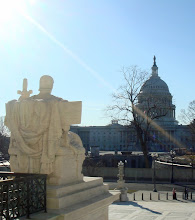Week 23: Looting
Nobel Laureate Milton Friedman was an opponent of taxing business, a common target for government revenue. He said, “there is no business to be taxed.”
At first, this may seem like an odd assertion coming from a free-market capitalist, like Friedman. He went on to explain that only people can be taxed. A building cannot pay taxes, nor a floor, etc. In terms of taxing business, so to speak, there is always a person or a group of people who will pay. In a small business or sole proprietorship, the owner of the business pays the taxes applied to his or her business. In a corporation, the stockholders pay the taxes from the profits they would otherwise share.
In small businesses, profits are quite often very thin, especially in the start-up years. Heavy tax burdens sometimes come at the expense of business growth, hiring workers or paying workers higher wages.
In corporations, keep in mind that stockholders are not predominantly fat cats in charcoal gray, pinstriped suits reading tickertape reports and drinking highballs. Many stockholders are workers, including the very workers employed by the corporations, who hold stock through their 401K or other retirement accounts. Taxing business reduces the money available to pay shareholders. This is one way that average person (meaning those who are not independently wealthy) suffers under the so-called progressive taxation of businesses.
Another way that progressive taxes on large and small businesses adversely impacts people, particularly at the lower levels of the socioeconomic scale, is that higher taxes often translate to the higher costs of goods and services, financially impacting the consumer.
What does all this mean in terms of looting, which we have seen associated with some protests in some areas of the country?
Looting is theft and often requires destruction of property (e.g., smashing windows, breaking down doors, etc.) to accomplish its purpose. The business owner, whether it be a sole proprietor or millions of shareholders, has to pay for repairs to the damaged business and the cost to replace the stolen inventory. In some cases, the costs are proving to be devastating, resulting in the closure of the business. In less severe cases, the businesses financial reserves are unexpectedly diminished. What happens then? The owner and/or employees are put out of work. They are rendered unemployed. Their lives and livelihoods are devastated. Some may need to go on welfare, thereby imposing a cost to society, which is effectively another way of taxing people. However, this is a form of taxation without representation: a mob of people taking actions that will impose costs on you and me. What gives them the right? Nothing, because there is no right to forcibly take what is not yours.
And who is looting? As we’ve seen in numerous news reports, it is not just the destitute. People of “privilege” (i.e., wealthy and/or white) are among the looters, Jake Paul being an infamous example. How does a rich white guy stealing a pair of Nikes advance racial harmony in America? I await any sound justification or rationalization on this point.
As we observe candidates’ reactions to looting and listen to their stands, it is essential to consider which candidates will uphold the rule of law. After all, we are a nation of laws, not of men (using the archaic meaning of “men,” be they male, female, or however one wishes to identify). Mob action, which is very different from protesting, and politicians who endorse it threaten the Liberty of each and every one of us.

No comments:
Post a Comment